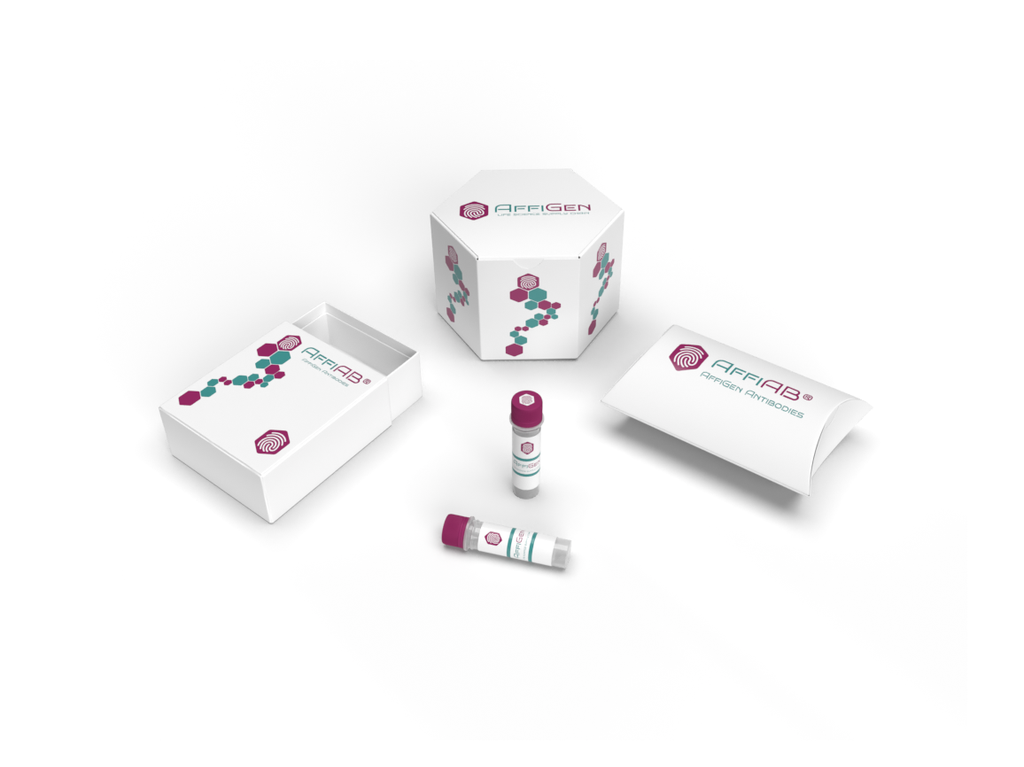AffiAB® Anti-NLK Antibody
Nlk Antibody (B-5) is a high quality monoclonal Nlk antibody (also designated Nlk antibody) suitable for the detection of the Nlk protein of mouse, rat and human origin. Nlk Antibody (B-5) is available as both the non-conjugated anti-Nlk antibody form, as well as multiple conjugated forms of anti-Nlk antibody, including agarose, HRP, PE, FITC and multiple Alexa Fluor® conjugates. The activation of signal transduction pathways by growth factors, hormones and neurotransmitters is mediated through two closely related MAP kinases, p44 and p42, designated extracellular-signal related kinase 1 (ERK 1) and ERK 2 (1-4) , respectively. ERK proteins are regulated by dual phosphorylation at specific tyrosine and threonine sites mapping within a characteristic Thr-Glu-Tyr motif. Phosphorylation at both Thr 183 and Tyr 185 is required for full enzymatic activation. In response to activation, MAP kinases phosphorylate downstream components on serine and threonine. Nlk, or nemo-like kinase, is a murine homolog of the Drosophila nemo (nmo) gene. Nlk and Nmo have sequence homology to both the ERK MAP kinases and the cyclin dependent kinases. Nlk is a nuclear protein with the ability to autophosphorylate.
Antibody type
Rabbit polyclonal Antibody
Uniprot ID
SwissProt: Q9UBE8 Human; SwissProt: O54949 Mouse
Recombinant
NO
Conjugation
Non-conjugated
Host
Rabbit
Isotype
IgG
Clone
N/A
KO/KD
N/A
Species reactivity
Human, Mouse
Tested applications
WB, IF-Cell, IHC-P
Predicted species reactivity
N/A
Immunogen
Recombinant protein within C-terminal human NLK.
Storage
Store at +4°C after thawing. Aliquot store at -20°C. Avoid repeated freeze / thaw cycles.
Form
Liquid
Storage buffer
1*TBS (pH7.4) , 0.2% BSA, 50% Glycerol. Preservative: 0.05% Sodium Azide.
Concentration
1 mg/mL.
Purity
Protein affinity purified.
Signal pathway
MAPK signaling pathway
Recommended dilutions
WB: 1:500-1:2, 000; IF-Cell: 1:50-1:100; IHC-P: 1:50-1:200
Molecular Weight
58 kDa
Subcellular location
Nucleus, Cytoplasm.
Positive control
SW480 cell lysate, HCT116 cell lysate, C2C12 cell lysate, MG-63, SW620, human uterus tissue, human small intestine tissue, human breast carcinoma tissue.
